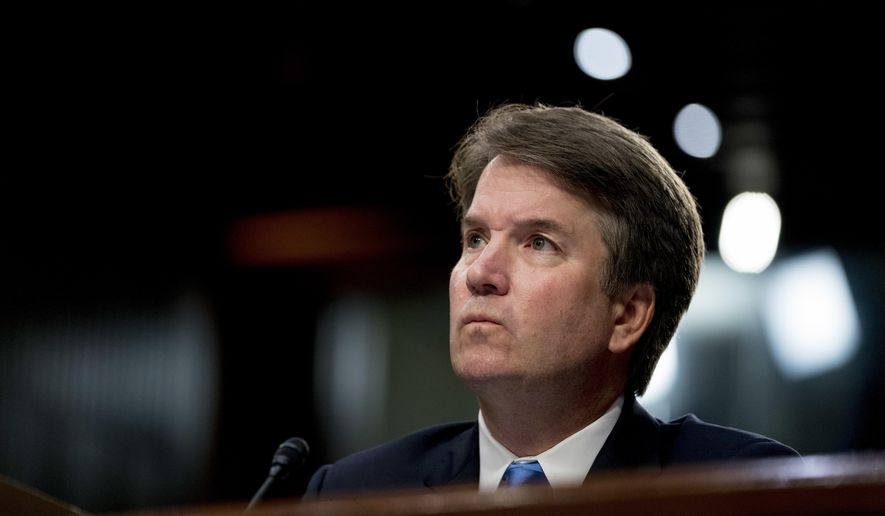Supreme Court Justice Brett M. Kavanaugh is recused in three cases to be heard this term by the high court out of the roughly 40 cases that the justices have granted review of so far.
More could come during the course of the court’s term through the spring, but as of October, Justice Kavanaugh will only sit out on Jam v. International Finance Corporation, Lorenzo v. Securities and Exchange Commission and Azar v. Allina Health Services.
All three cases come before the Supreme Court from the D.C. federal appeals court where Justice Kavanaugh sat as a circuit court judge for 12 years.
He was part of the original three-judge panel in two of the cases and participated in an en banc order in the other.
“This is not terribly high for a first term justice, especially from the DC Circuit which gets a pretty high review rate from the Supreme Court due to the national salience of many of its cases,” said Adam Feldman, founder of the Empirical SCOTUS blog.
Jam v. International Finance Corporation is a case brought by foreign fisherman and farmers over damages to communities near Gujarat, India, from work done by an Indian company and an international organization located in Washington, D.C.
SPECIAL COVERAGE: Best of 2020: Top stories and columns from The Washington Times
Meanwhile, Lorenzo v. SEC concerns a man who says he did not have authority over a deal, and thus should not be held liable of violating part of the Securities Exchange Act since he was following his boss’s orders.
Lastly, Azar v. Allina Health Services asks the court if the Department of Health and Human Services legally implemented the formula for Medicare reimbursement under the Medicare Act.
Democrats and liberal advocacy groups had charged Justice Kavanaugh of being too partisan at his confirmation hearing when he was responding to unsubstantiated allegations of sexual misconduct, which legal experts say could raise other recusal questions in future cases.
“Certainly, Justice Kavanaugh’s intemperate remarks during the confirmation process will be the basis of voluminous, and potentially unprecedented, recusal issues. Thus far, however, his recusals appear routine,” said James Sample, a professor at Hofstra University.
Advocacy groups have also demanded he recuse himself in cases that come before the Supreme Court related to President Trump.
• Alex Swoyer can be reached at aswoyer@washingtontimes.com.




Please read our comment policy before commenting.